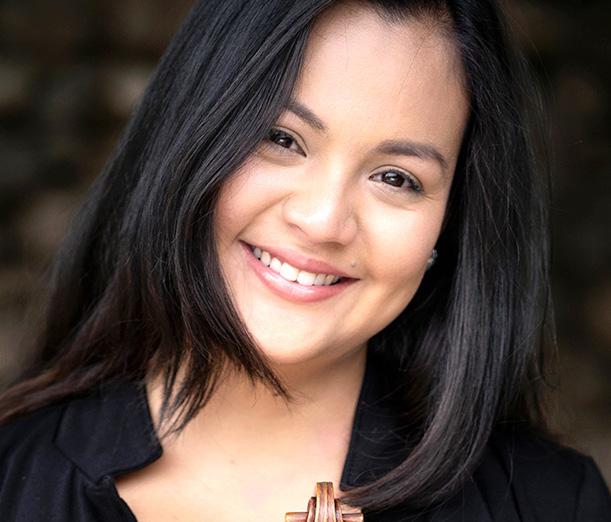
5 minute read
BEETHOVEN SYMPHONY NO. 1
LILI BOULANGER (1893-1918)
PSALM 24, THE EARTH IS THE LORD’S (1916)
Advertisement
Scored for: four horns, three trumpets, four trombones, tuba, timpani, harp, organ, and chorus Performance time: 5 minutes
First Grant Park Orchestra performance
The story of Lili Boulanger is equal parts inspiring and tragic. Born to a musical family, the talented young musician composed a number of masterworks during her short life before she passed away at the age of twenty-four. Her older sister, Nadia, who went on to become one of the most influential composition teachers of the twentieth century and guru to generations of American composers from Aaron Copland to Philip Glass, claimed her sister was “the first important woman composer.” Obviously, her statement is hyperbolic, but had Lili lived a full life, who knows what glass ceilings she could have broken? Lili’s father, Ernest Boulanger, was a moderately successful composer himself who taught singing at the Paris Conservatoire. He discovered Lili’s talent early on; from five years old, she began tagging along to Nadia’s music theory classes at the Conservatoire. The musical prodigy also studied numerous instruments, but she ultimately devoted herself to composition, seeing it as a familial rite of passage. In 1913, she became the first woman to win first prize in the prestigious Prix de Rome, which had been awarded to the likes of Debussy, Bizet, and Berlioz. After this, Lili devoted what little time she had left to coming to terms with her failing health through composition. She had always been frail, having had bronchial pneumonia at the age of two, which weakened her immune system and led to a lifelong battle with intestinal tuberculosis (now known as Crohn’s disease). Her highly emotional psalm settings, written in 1916, serve as acts of defiance against both her declining health and the First World War that raged around her.
Psalm 24
La terre appartient à l’Eternel, et tout ce qui s’y trouve, la terre habitable et ceux qui l’habitent Car il la fondée sur les mers et l’a établie sur les fleuves. Qui est-ce qui montera à la montagne de l’Eternel Et qui est-ce qui demeurera au lieu de sa sainteté? Ce sera l’homme qui a les mains pures et le coeur net dont l’âme n’est point portée à la fausseté Et qui ne jure point pour tromper Il recevra la benediction de l’Eternel et la justice de Dieu son sauveur Telle est la generation de ceux qui le cherchent qui cherchent Ta face en Jacob Portes, élevez vos têtes, Portes, éternelles haussez-vous et le Roi de gloire entrera Qui est ce Roi de gloire? C’est l’Eternel fort et puissant dans les combats Portes, élevez vos têtes The earth is the Lord's, and the fulness thereof; the world, and they that dwell therein. For he hath founded it upon the seas, and established it upon the floods. Who shall ascend into the hill of the Lord? Or who shall stand in his holy place? He that hath clean hands, and a pure heart; who hath not lifted up his soul unto vanity, nor sworn deceitfully. He shall receive the blessing from the Lord, and righteousness from the God of his salvation. This is the generation of them that seek him, that seek thy face, O Jacob. Lift up your heads, O ye gates; and be ye lift up, ye everlasting doors; and the King of glory shall come in. Who is this King of glory? The Lord strong and mighty, the Lord mighty in battle. Lift up your heads, O ye gates; even lift them up, ye everlasting doors;
élevez-vous aussi, Portes éternelles Et le Roi de gloire entrera Qui est ce Roi de gloire? C’est l´Eternel des armées C’est Lui qui est le Roi, le Roi de gloire
John J. Concepcion, tenor soloist and the King of glory shall come in. Who is this King of glory? The Lord of hosts, he is the King, the King of glory
JONATHAN DOVE (b. 1959)
THE PASSING OF THE YEAR (2000)
Scored for: piano and chorus Performance time: 18 minutes
First Grant Park Orchestra performance
British composer Jonathan Dove is one of the most prominent composers of vocal music today, having written a number of highly successful operas along with solo songs and both secular and sacred choral music. Dove dedicated The Passing of the Year to his late mother who died when she was only fifty-four. The seven-movement song cycle, which takes it texts from poems by William Blake, Emily Dickinson, Alfred Lord Tennyson, and others, is a celebration of nature and the changing of the seasons, but it also acts as a metaphor for the changing seasons of life, from birth to the joyful anticipation of the afterlife.
The first song, “Invocation,” sets a single line from William Blake’s poem “Hear the Voice.” The minimalist polyrhythmic oscillation of the piano and the expansive vocal harmonies are pregnant with excitement, as if seeds in the ground are ready to burst into life at any moment. In “The narrow bud opens her beauties to the sky,” the voices emerge one by one out of a single solo voice, like a blossom unfolding. Dove then subtly incorporates the medieval English round “Sumer is icumen in,” which, appropriately, appears in canon in the two bass parts. The third movement, “Answer July,” demonstrates the interconnectedness of nature and the important role each season and actor play in creating the beauty of summer. The voices chase each other in short, playful phrases over a galloping piano accompaniment in a way that is reminiscent of another great British composer of vocal music, Benjamin Britten. By the fourth movement, “Hot sun, cool fire,” we are immersed in a sultry summer night where the heat makes it difficult to move. In fact, the sopranos and altos of the second choir move so slowly, they can’t get through the whole text. This languorousness is contrasted by the sizzling tremolo in the piano, which eventually erupts into a blazing sunlit crescendo. In the next movement, “Ah sun-flower,” the gradually climbing vocal lines depict a sunflower that is stretching ever upward to the sun but never quite reaches it. The emotional heart of the piece comes in the sixth song, “Adieu! farewell earth’s bliss.” One choir sings a doleful refrain of “Lord have mercy,” moving in alternation with plodding chords in the piano in a way that evokes the footsteps of a funeral march, while the other choir sings a meditation on the inevitability of death. Dove then contrasts the rich, double-choir harmonies with moments of stark unison to highlight the words “I am sick/I must die.” In the final movement, “Ring out, wild bells,” a repeat of the opening “O Earth, O Earth, return!” gives way to an eruption of bell sounds in both the piano and the choir to ring in the New Year. The piano is at its most virtuosic here, and the choir sings a rare moment of stirring homophony. The evocation of change ringing continues as numerous canons converge in joyful celebration of the promise of a new beginning.






